IAP607: Group consultancy report Assignment Help
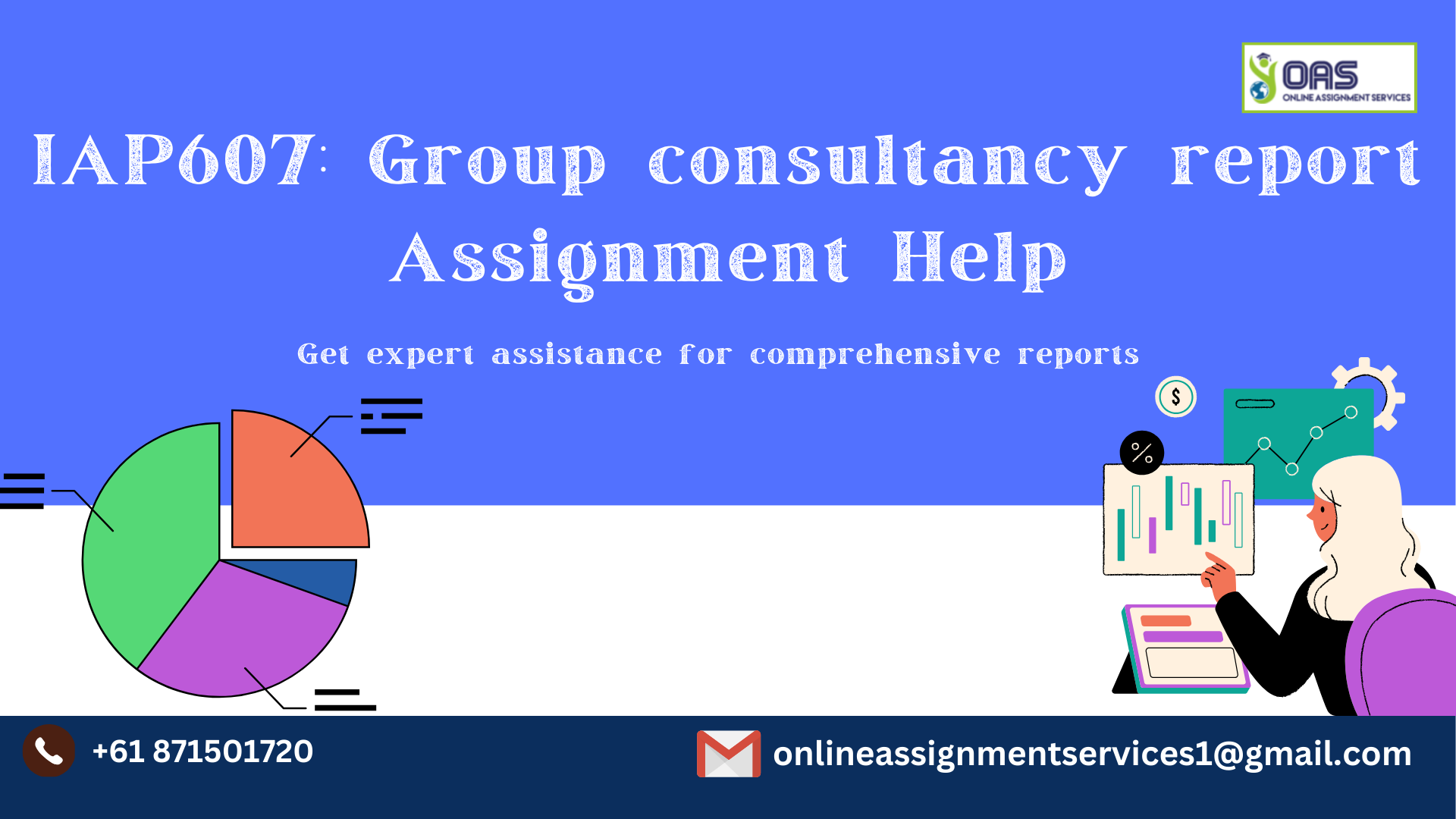
Question
IAP607: This assignment for Torrens University Australia constitutes an essential requirement for the Independent Critical Analysis Project. In this assignment, the students are required to complete a research project that focuses on the examination of a real-world business issue that is centered around the hospitality sector. Based on this completed and approved study project, students will need to submit a research report.
Solution
The topic taken for this research project and report is the association between travel intentions and the influence of social media on Gen Z travelers.
The solution for this assignment incorporates the following parts- an Abstract, a Background to the research topic, a detailed Literature Review, a Methodology section, Findings, and Discussion, a brief conclusion, and some Recommendations, followed by highlighting some areas of new research.
Abstract
The solution begins by providing an abstract to the research report. Here, our experts have highlighted the purpose of writing this report as well.
Gen Z in Australia is a digital generation that spends most of their time on social media, which subsequently influences a number of their decisions. There is however lack of enough literature in Australia on how social media marketing affects the travel intention of Generation Z in Australia. For this reason, research is undertaken to determine the relationship between travel intentions and the social media influence on Gen Z travelers. The research method is a quantitative data collection method.
Want to read more? Don’t hesitate to WhatsApp us at +447956859420.
Background
A brief foregrounding is provided for the research problem here by pointing out the significant information about the focus area of the study. Additionally, our experts have also presented the research objectives and the scope of the present research report.
Generation Z also known as Gen Z state a cohort of individuals born between 1997 and 2012, succeeding millennials. This cohort has been brought up on the internet and social media face, with some of the individuals concluding college by 2020. Currently, there are about 4.6 million Gen Z Australians, and with this generation, the prevailing and future markets depict what has shaped them, including what motivates them (McCrindle, 2019). Australia’s Gen Z is a digital cohort constantly adopting technology in communication and socialization, having used it at young ages. They have identified various social media platforms, using them for various purposes. Social media, therefore, influences a huge number of choices through various platforms.
Research Objectives
- To assess the behavior of Gen Z in the travel and tourism industry within Australia.
- The study will evaluate the impact and role of social media on the travel sector.
Scope of Report The report will cover the background of the research, including the research problem, literature review drawn from credible sources, and methodology.
This is only 50% of the solution. To know more, WhatsApp us at +447700174710.
Literature Review
This section portrays an extensive analytical review of the literature written by our experts. All the studies highlighted here are taken from relevant and credible sources.
Various research papers have been of great essence in the field of study that evaluated the research question “The impact of social media marketing on the travel intention of Gen Z travelers in Australia.” The research was undertaken by Hysa et al, (2021) identifies activity preferences and perceptions of various generations X, Y, and Z when using social media to make travel plans (p.1018). The research focuses on ascertaining the generation that uses social media mostly in various stages of travel planning. The study depicts that 90% of Gen Z are active social media users. Another research conducted by Prakash Yadav & Rai, (2017, p.110) supports the findings of Hysa et al, (2021, p.1018) by unveiling that Gen Z uses social media to influence them as individuals in society. Research carried out by Berhanu & Raj (2020) elevates the anxiety about the reliability of information posted on social media platforms and the number of Gen Z that depend on information attained. However, Gen Z is a smarty cohort that realizes not every review on social media is legit. Another study undertaken by Shorey et al, (2021, p.103247) supports the insight of Berhanu & Raj identifies that education can enable Gen Z to differentiate between real and fake information shared on social media platforms. Therefore, they select reliable reviews from travelers. Moreover, reviews from friends and family followed by positive or negative reviews were highly considered when assessing the genuineness of information. Dimitriou & AbouElgheit, (2019) undertake research that focuses on depicting elements associated with the decision-making procedure of Gen Z before arriving at a travel decision (p.316). The research initiates a marketing plan for marketers to trail and utilize to target Gen Z who are technology-focused. The research comprehends that Gen Z is a cautious traveler who is leisure-oriented and is in constant search of social media content that is influential
Need more literature evidence for the research topic? No need to worry, our experts are here to assist you- onlineassignmentservices1@gmail.com.
Methodology
In this methodology section, all the important aspects related to how the study was done along with proper reasoning for why the particular method was chosen. This section is further divided into sub-sections which are as follows:
Introduction
Research Methodologies are particular techniques or procedures used in the identifying, choosing, handling, and analyzing of data about a particular field of study. This research study equips a reader with the ability to evaluate the general reliability and validity of the research (Ahmad et al., 2019, p.2).
Research Methodology
Surveys were used as the major research method, where questionnaires were created with questions relevant to the three objectives set to gain more insight into how the travel intent of Gen Z Australia is influenced by social media marketing. They were thirty-three questions touching on all the three objectives in a continuous order. The research will utilize quantitative data (Apuke, 2017, p.2). The chosen methodology unveiled useful information via the collection and analysis of data on the travel intent of Australia’s Gen Z and how social media marketing influences travel behavior.
Population and Sample
The target population is Australia’s Gen Z. They were the chosen population because the study tried to identify how social media marketing influenced their travel intention. The target 5population for the study is however between 18 and 25 years. This is because this age bracket is mature enough to make autonomous decisions, especially on traveling, using social media, and making individual travel plans. The research topic is a social issue that incorporates a wide range of data reliant on several responses of all participants.
Data Collection
Primary data were utilized in this research (Roh et al., 2019, p.1328). Primary data was collected from respondent participation in the online survey (Druschke et al., 2020, p.109). The researcher approached Australian residents aged between 18 and 25 years via various social networking sites.
Data Analysis
For this research, quantitative analysis was identified. For the survey, a questionnaire was structured using a Likert scale format as identified by Fisher & To, (2012, p.866). The respondents were randomly approached and requested to be part of the online survey. The answers were presented in a questionnaire form that had been forwarded to them (Ruliyanti et al., 2021, p.5).
The measure of Good Research
Good research is generalizable and representative- Criteria of good research incorporate being representative. In a study, representativeness signifies the ability of a sample to represent the whole population. This symbolizes that the characteristic of Gen Z travel intent to be influenced by social media marketing being studied has a close link with the target respondents.
Good research has external validity Good research incorporates external validity if the findings can be applied in real life. There exist two types of external validity to be considered by researchers: ecological validity and population validity (Loyka et al., 2020, p.483).
Good research is transparent, replicable, and reproducible. Although replicability reproducibility can be used reciprocally, it attains reproducibility if researchers attain consistent results via similar data and analysis methods (Allison et al., 2018, p.2561).
Limitation
The use of sample size assessment has a direct correlation with research findings. A small sample size lessens the power of the study and upsurges the margin of error, which can lead to higher variability thereby causing bias (Story & Tait, 2019, p.192).
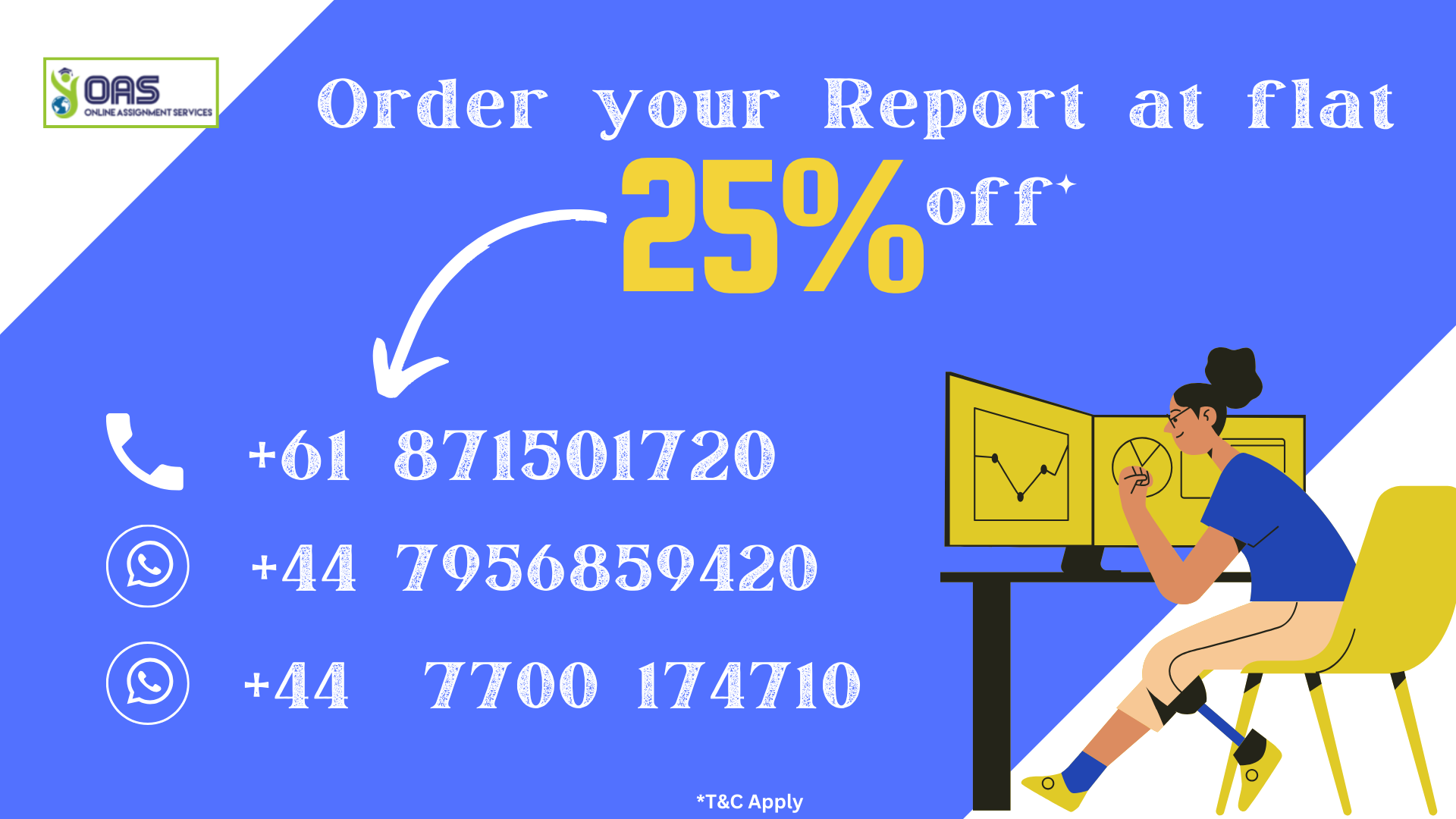
Interested in reading more about the methodology undertaken for this research report? Wait no more, and call us at +61 871501720 today.
Findings and Discussion
The results and what these results indicate for the research problem are highlighted in this section. Our experts have clearly outlined all the significant findings here. Furthermore, it was ensured by our experts that the findings were presented with all the associated research objectives.
Objective 1: To assess the travel behavior and intent of Generation Z in the travel industry in Australia.
The Gen Z respondents regularly travel within Australia at 43.8% although 36.9 irregularly travel. In the last year. At least 30.8% of Gen z have traveled in the last year depicting the intention to travel. The main drive of traveling for the Gen Z respondents is escaping normal routine at 55.4% although others preferred meeting new people and adventure at 18.5% and 16.9% respectively. The data is represented in Figure 1.
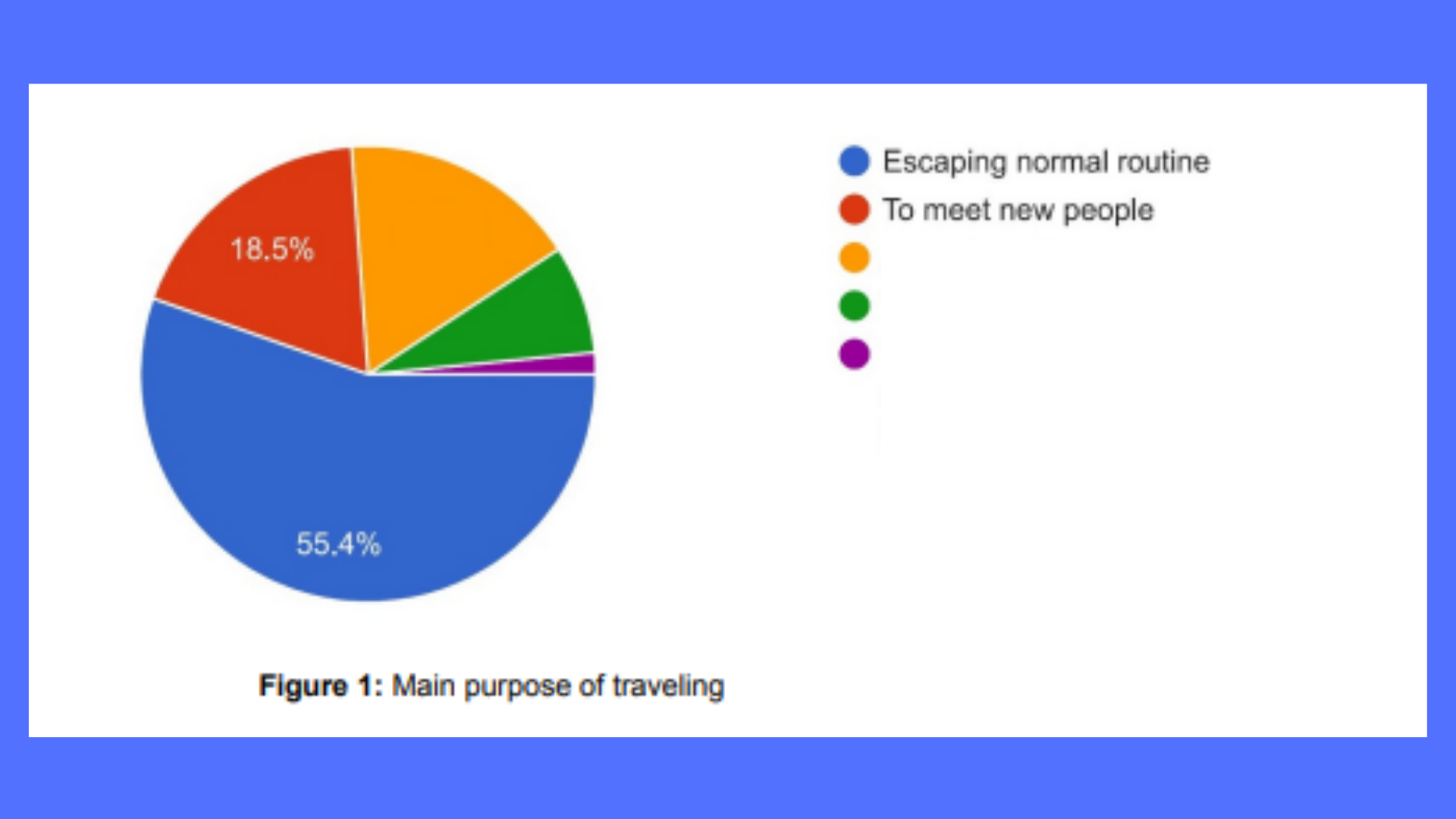
Research done by North Star research partners on the travel behavior of Australia has identified that travelers prioritize low price deals and activities, cultural experiences, and once in a lifetime trips, and roughly 48% intend to book the trip through an online travel agency. The study identified Gen Z travelers who are open-minded international travelers who fancy outdoor activities and embrace the slogan “you only live once” (YOLO). The study depicted that Australian Gen Z travel frequency is 37 on average and has the highest efficacy among all the other generations to travel 8internationally at 51%. Additionally, the research identified that 78% make reviews on social media before deciding on the most viable destination (Expedia Advertising Group, 2017). Reliant on research conducted by Ad Age Studio 30 that surveyed 11, 661 students in the U.S, UK, New Zealand, and Australia Gen Z identified that the cohort does not prefer all-night parties while on travel destinations as it is in the sixth place in their wish list. Instead, their number one priority on a trip is exploring good food. From the online survey research, Australia Gen Z is attracted by various activities in travel behavior. 63.6% are attracted by nice food as their first preference, 66% shopping, 58.1% nice accommodation, 49.6% unique transport, 42.6% good weather, 34.1% culture, 23.3% social activities, 20.2% exploring architecture, and 15.5% viewing landscape.
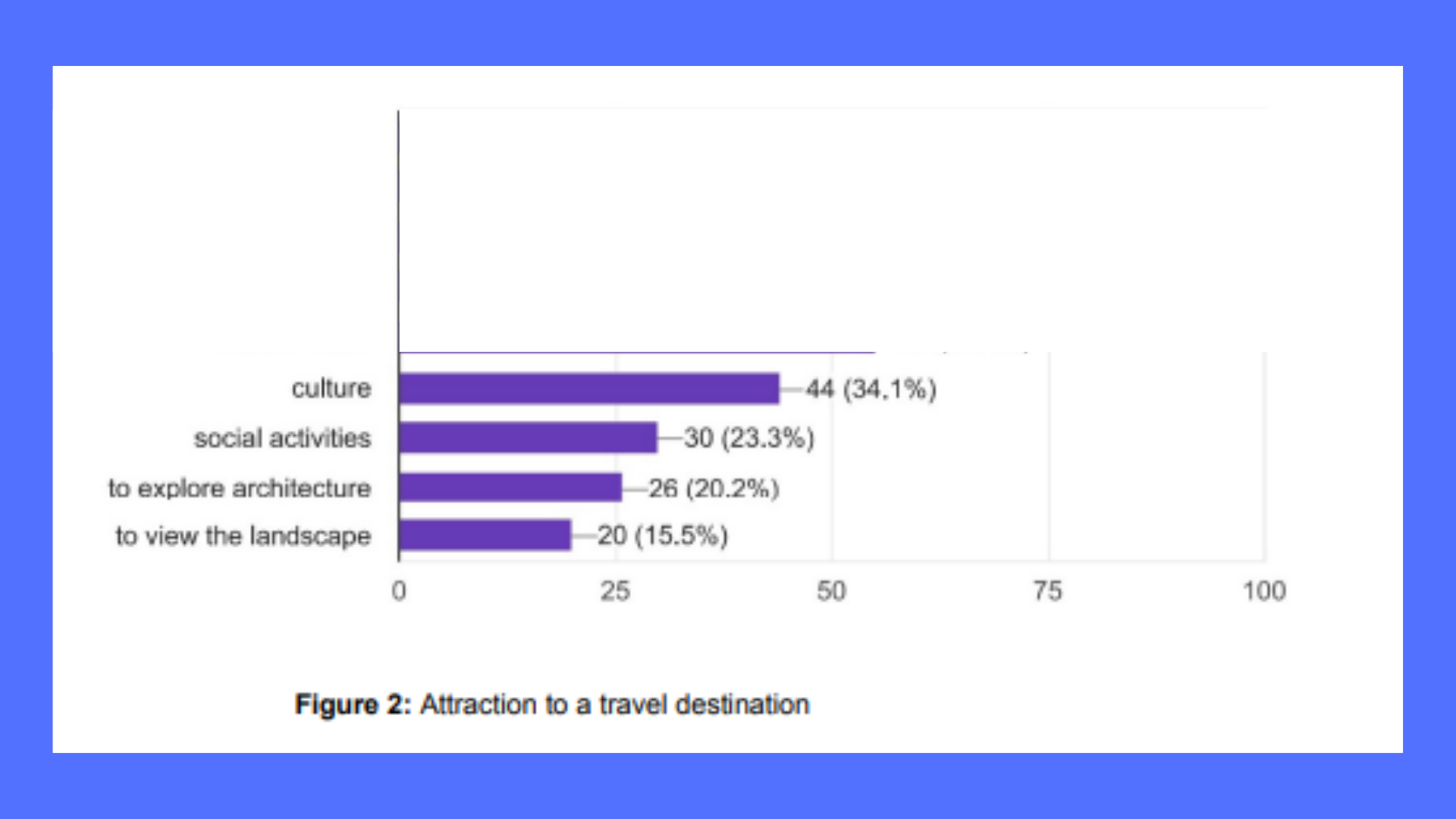
Objective 2: Evaluate how social media affects the traveling intent of Generation Z.
Almost all respondents confirmed their presence on social media although differing in the frequency of use. 48.8% of respondents use social media daily, 39.4% use frequently and 10.2% of respondents hardly use social media. This is a representation that social media is a vital place in the daily life of a Gen Z. The data is represented in Figure 3.
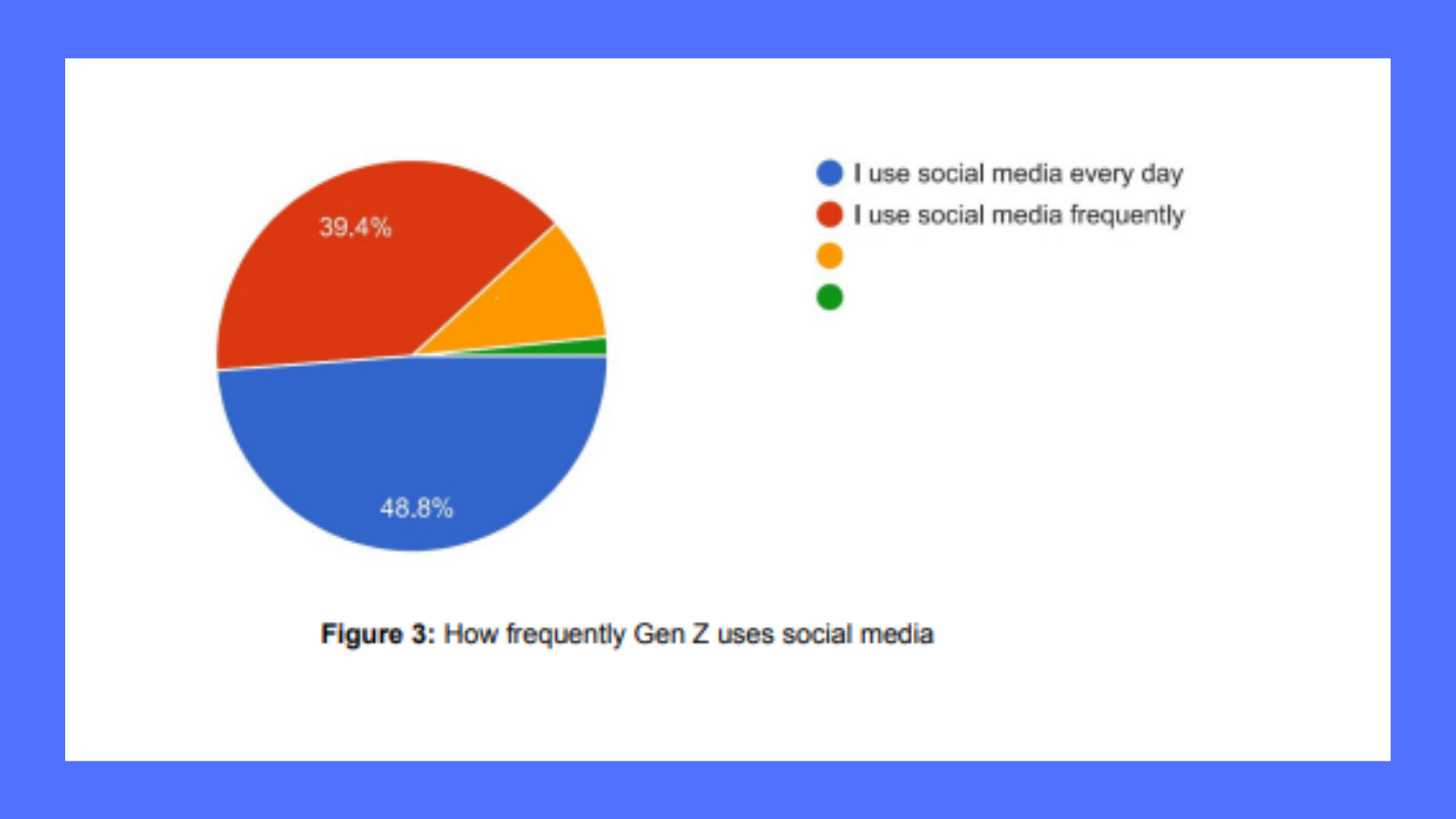
A generational breakdown of social media users in Australia as of 2020 by platforms identified that Gen Z is the most users of social media followed by millennials and generation X. In the statistics by Statista, Gen Z mostly prefers YouTube at 91% followed by Facebook and Instagram at 82% and 69% respectively as evident in Statista, (2022). From the online survey, over half of the respondents (53.1%) rely on social media to make travel choices, although 36.2% of these sometimes rely on social media to make decisions. In the survey, 69.5% of respondents reveal that they would make a travel decision reliant on social media reviews because they highly trust social media reviews.
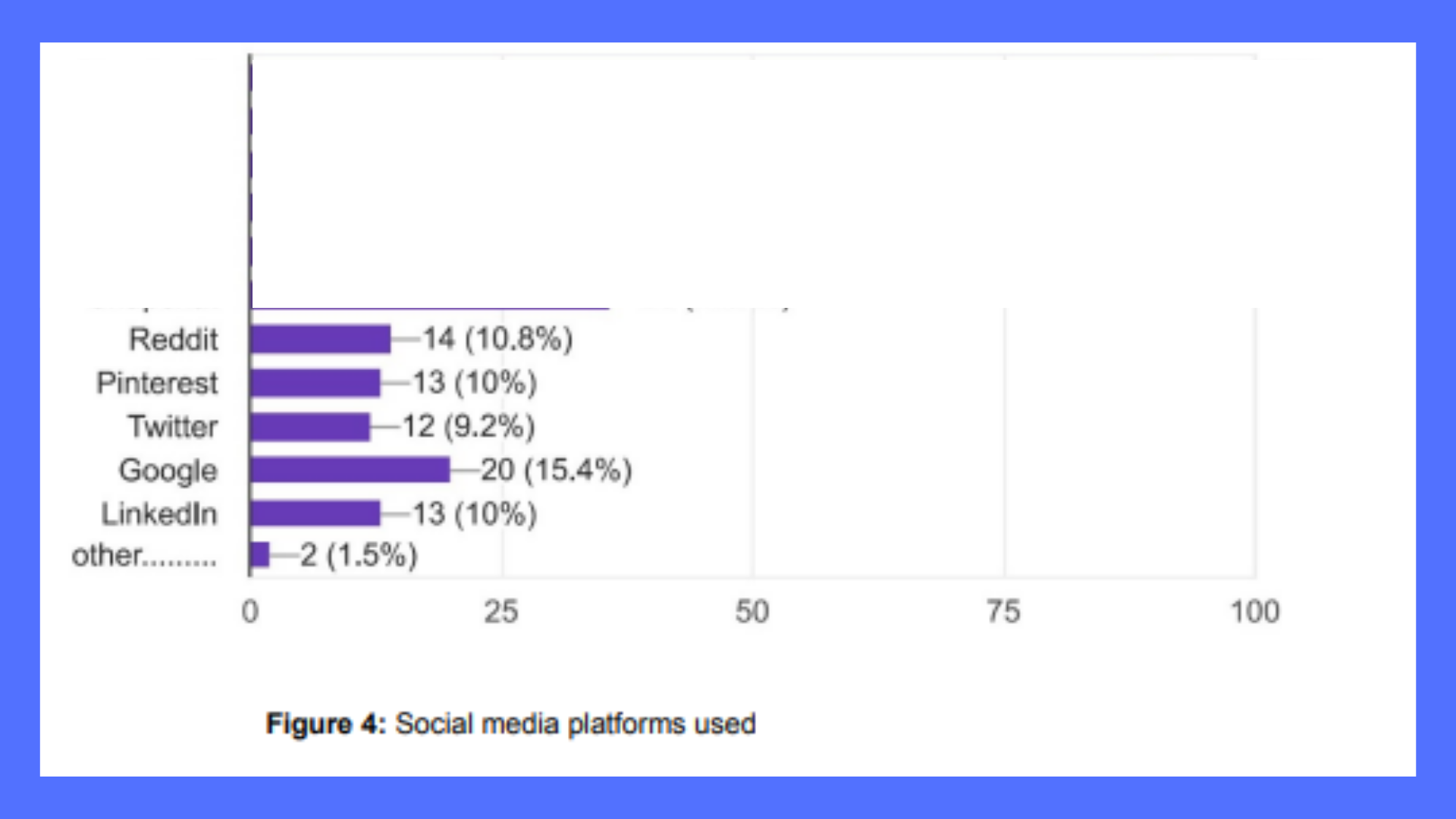
Objective 3: impact of social media marketing on the traveling intent of Generation Z in Australia.
From the online survey of Australia Gen Z, 59.4% are influenced by social media marketing to make travel decisions to explore new destinations. Social media influencers play a significant role in social media marketing as they inspire the travel choice of most Gen Z. This is reflected in the online survey as 45.3% of respondents made successful travel plans inspired by an influencer. The respondents highly trust social media reviews (44.5%), while other respondents at 32.8% trust social media reviews, especially those made by influencers. From the online survey, Gen Z prefers social media marketing to other forms of marketing like billboards. This group highly esteems social media marketing and it is the reason why most respondents (38.6%) rate the travel experience as 5 stars, 4 stars at 22%, and 3 stars at 35.4%. The data is represented in Figure 5.
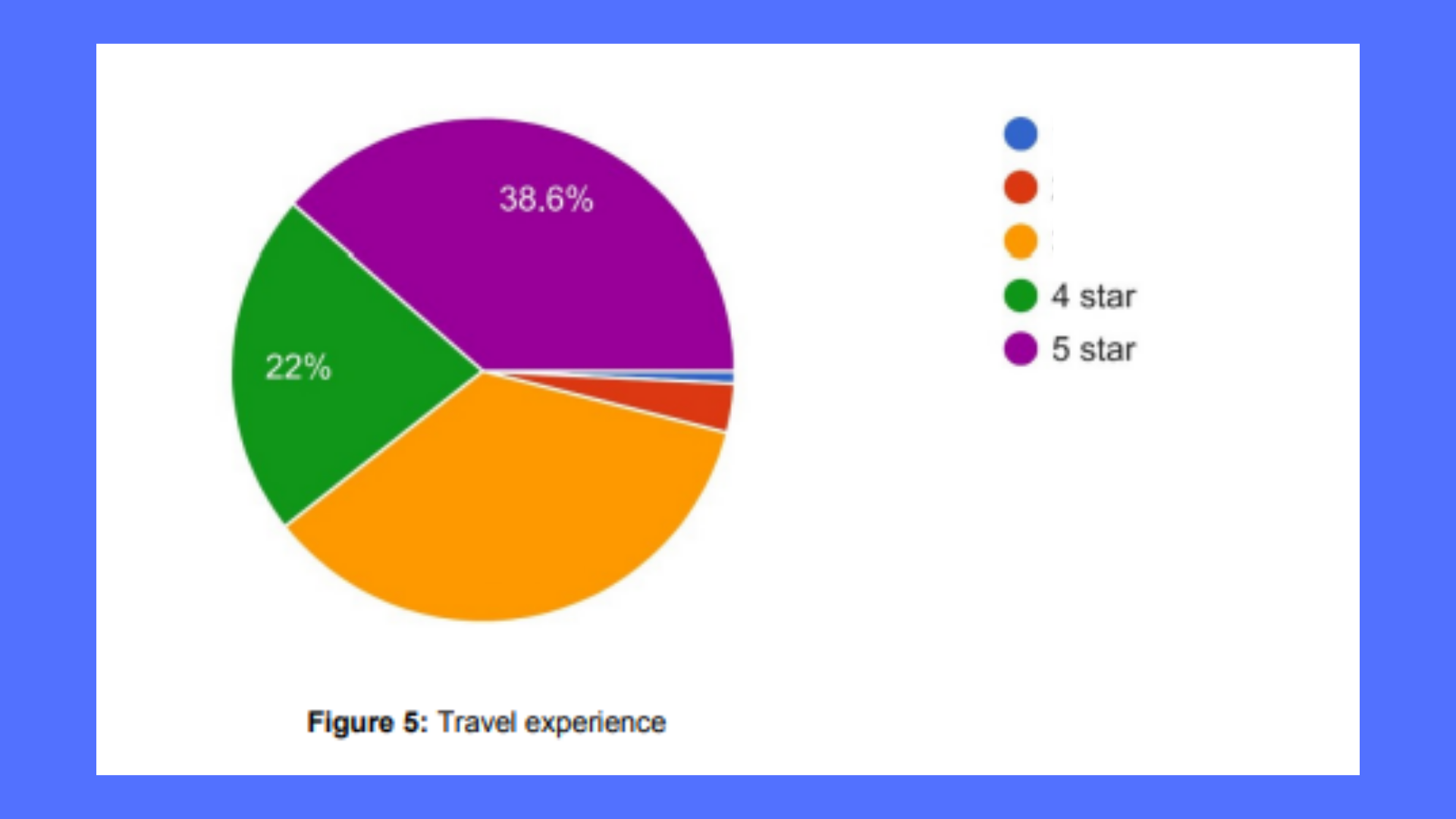
Conclusion
Lastly, a concluding section including all the important aspects of this research report is presented. Our experts have also provided some recommendations based on the analysis and findings of this research along with highlighting some areas where future research can be undertaken.
This study was undertaken to gain more knowledge on the travel behavior of Australian Gen Z, their reception of social media, and how social media marketing affects their travel intention. This generation is born in the era of technology and is a frequent user of social media in Australia (Statista, 2022). This study targeted this group because they are at least 18 years and can make viable travel choices and even travel alone. Most Gen Z is however in colleges and the introduction of social media has made them rely on social media for most of their purchase decisions. The research sought to identify how social media affect their purchase efficacy. From the research, it can be concluded that Australian Gen Z is frequent travelers who highly esteem traveling and even save towards travel expenses (Goh & Lee, 2018, p.20). This generation is mostly drawn to good destinations by good food, nice accommodation, and shopping, their traveling intention being to escape from normal routine and adventure as preferred by many.
Recommendations
- The hospitality industry should have an active social media presence, as many Australia’s Gen Z are active social media users.
- The hospitality industry should continuously update their social media platforms with attractive destinations, pictures, or services offered in the locations to attract Australia’s Gen Z who are frequent users of social media.
Did you like the comprehensively written research report by our experts? Let us help you as well. Reach out today- onlineassignmentservices1@gmail.com.

